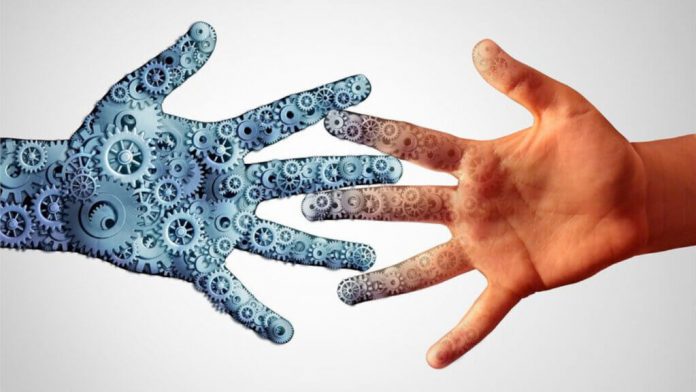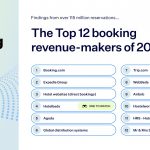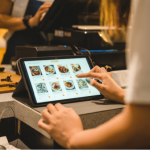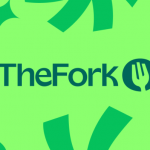What comes to your mind when we say hospitality? Front office? Service? Human touch? Personal connections?
NB: This is an article from RateGain
At the core of the idea of hospitality lies the idea of making it human. But what if we told you that adding AI and tech to hospitality is, in fact, making it more human?
Digital hospitality provides a way to personalize experiences with the help of AI at a level that staff would not be able to. For example, instant messaging software allows every message to be answered in real time with the added touch of addressing each guest by their name and even their own language!
Subscribe to our weekly newsletter and stay up to date
That is the core of digital hospitality: A way to make a personal impression without diminishing human contact. As we move into a digital first world, the definition of hospitality has changed and is still evolving. Tech is becoming an important part of hospitality, especially post-COVID. So what is digital hospitality? It is an umbrella term to describe the range of IT applications in the hospitality industry. That’s it.
Wait, isn’t it just a fad?
No! In fact, the smart hospitality market size is expected to grow from USD 13.6 billion in 2022 to USD 49.9 billion by 2027, at a Compound Annual Growth Rate (CAGR) of 29.8% during the forecast period. AI is providing innovative solutions to the many challenges faced by the hotel industry.
Not only is tech solving problems, it’s also providing a way to elevate experiences while helping the hotel at every step. What this means is that the right mixture of tech support and human intervention is currently redefining hotel experiences for every guest, every hotelier.
As tech is becoming a major part of hospitality, learning about digital hospitality as a hotel leader becomes of prime importance.
Why digital hospitality should be next for your hotel
Ease of use
Not only are guests able to simplify a wide range of hotel procedures throughout their stay, but the staff are also able to lighten their workload by automating certain repetitive tasks. Certain softwares allow for instant messaging on channels like WhatsApp, WeChat etc., which makes it extremely easy to use for the guests who keep their phones on them at all times. Nearly 30 percent of travelers said that they are “very interested” in staying at a hotel that uses automated messaging for most customer service requests, driven by the idea that it’s much easier to find help through text and chat than track down a person who can assist.
Improved revenue
Upselling software proactively reaches out to guests to promote ancillary services. At every stage of the guest journey, capture the guests’ attention and advertise services at the right time, the right way. Starting even before they check-in, guests will be able to get information about room upgrades, available services, and more. One major hotelier that leveraged predictive analytics and customer profiles to personalize promotions boosted consumer acceptance rates by 300% in one year.
System integration services
Some processes, like virtual check-in, can be automated to avoid repetitive tasks for the operations team. PMS and supporting booking softwares are automatically updated as rooms are reserved to ensure that guests making direct reservations see the latest information on availability. Revenue managers use hotel automation to make sure that real-time changes are appropriately represented in the property’s CRM, revenue, inventory, and sales systems rather than manually tracking and inputting data from one system to another.
Helps the hotel own a guest’s journey, even outside the hotel
A hotel is no longer just a place to stay in foreign countries, it’s an experience. As competition has gone up, so has the need to become a more personal part of a guest’s life. Establishing a rapport in and out of the hotel has become an important need. AI could be the solution, keeping in touch with their journey outside of the hotel by wishing them on birthdays, sending promotions and more.
Personalization
AI provides a level of personalisation to every guest that wouldn’t be otherwise possible. Every message can be customized to their native language, interests, names, and many more details, which can prove extremely essential in crafting a great experience. Personalization plays into two key psychological factors: Desire for control and information overload:
Desire for control: Personalization gives people an illusion of control; since the content is personalized, it’s something you, as a person, have chosen to see.
Information overload: The constant bombardment of ads means guests can often miss what the hotel has sent. Personalisation avoids this by tailoring content specific to a person’s interests.
The benefits of digital hospitality cannot be ignored anymore as more and more hotel leaders are adapting and actively using them to better guest experiences. In fact, over one-third (34.4 percent) of hotel leaders said they are already heavily invested, with another 26.6 percent in early stages. Only 3.7 percent said they do not plan to invest in this technology. Clearly, smart hospitality is coming to the center stage. The spotlight is now on hotels that are quick to adapt to these sweeping changes.
The hotel industry is increasingly employing conversational AI and robotic automation technologies, but there’s still a huge ground to cover. It has huge potential but is underpenetrated.
Read more articles from RateGain
The post Why Digital Hospitality Should Be Next For Your Hotel appeared first on Revenue Hub.
































